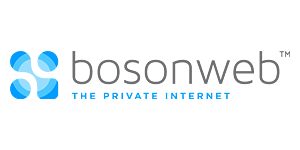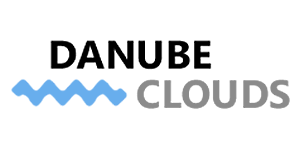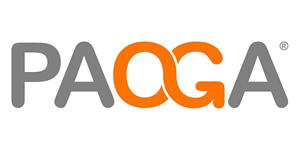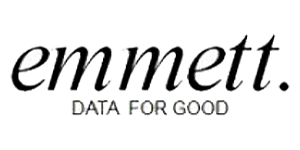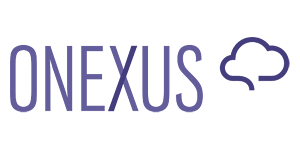Respect Network (@RespectConnect) is a new kind of corporate animal: a for-profit company that is also a collection of developers and other interested parties (including nonprofits) gathered around common goals and principles. Chief among the latter is OIX‘s Respect Trust Framework, which is “designed to be self-reinforcing through use of a peer-to-peer reputation system.” Every person and organization agreeing to the framework is a peer. Here are the five principles to which all members agree:
| Promise | We will respect each other’s digital boundaries |
Every Member promises to respect the right of every other Member to control the Member Information they share within the network and the communications they receive within the network. |
| Permission | We will negotiate with each other in good faith |
As part of this promise, every Member agrees that all sharing of Member Information and sending of communications will be by permission, and to be honest and direct about the purpose(s) for which permission is sought. |
| Protection | We will protect the identity and data entrusted to us |
As part of this promise, every Member agrees to provide reasonable protection for the privacy and security of Member Information shared with that Member. |
| Portability | We will support other Members’ freedom of movement |
As part of this promise, every Member agrees that if it hosts Member Information on behalf of another Member, the right to possess, access, control, and share the hosted information, including the right to move it to another host, belongs to the hosted Member. |
| Proof | We will reasonably cooperate for the good of all Members |
As part of this promise, every Member agrees to share the reputation metadata necessary for the health of the network, including feedback about compliance with this trust framework, and to not engage in any practices intended to game or subvert the reputation system. |
The Respect Network’s founding partners are working, each in their own way, to bring the Respect Trust Framework into common use. I like it as a way to scaffold up a market for VRM tools and services.
This summer Respect Network launched a world tour on which I participated as a speaker and photographer. (Disclosures: Respect Network paid my way, and The Searls Group, my consultancy, has had a number of Respect Network partners as clients. I am also on the board of Flamingo and Customer Commons, a nonprofit. I don’t however, play favorites. I want to see everybody doing VRM succeed, and I help all of them every way I can. ) We started in London, then hit San Francisco, Sydney and Tel Aviv before heading home to the U.S. Here’s the press coverage:
- Geeks New Desk in BWW: Respect Network Announces 20 New Founding Partners in Advance of Global Launch (4 June 2014)
- David Meyer in Gigaom: Privacy and “marketing nirvana” in one package? Meet the Respect Network (23 June 2014)
- Nermin Bajric in ARN: New global P2P data sharing network promises to restore Internet privacy (24 June 2014)
- Nick Booth in Datacenter Dynamics Respect Launches Campaign to Fund a Global Network (24 June 2014)
- Ian Murphy in Business Cloud,: Respect Network launches private cloud (24 June 2014)
- Duncan MacRae in Computer Business Review, Respect Network’s Global Private Cloud Launch Marks Privacy Milestone (24 June 2014)
- Alex Hamilton in CloudPro: Registration open for “world’s first” global private cloud (24 June 2014)
- PR Newswire: Launch of World’s First Global Private Cloud Network Kick Starts the Internet Privacy Revolution (24 June 2014)
- Phil Wainewright in Diginomica: Respect Network offers antidote to Facebook privacy flaws (25 June 2014)
- Amir Mizroch in The Wall Street Journal: Network Lets You Sell Your Data For Cloud Storage (25 June 2014)
- Max Smolaks in TechWeekEurope: Respect Network Wants Members To Get Paid For Their Data (25 June 2014)
- Haydn Shaughnessy in Forbes: The Future Business Platform – You (30 June 2014)
- Steven Kiernan in CRN: New global network promises end to privacy fears — Never let your data get sold for marketing again. (1 July 2014)
- Mary Branscombe in CITEworld,: Why Facebook’s user experiment is bad news for businesses (2 July 2014)
- John Leonard in Computing: Ironically Facebook is our inspiration, says privacy-by-design social start-up Respect Network (3 July 2014)
- Bryon Connolly in CIO: The Rise of the Personal Cloud (3 July 2014)
- Stuart Corner in The Sydney Morning Herald: Respect Network puts users in control of their personal data – and in the money (7 July 2014)
- Graeme Philipson in ITWire: Respecting your privacy – new ‘private cloud’ to take on Facebook. (8 July 2014)
- CMO: Flamingo Joins The Respect Network As Founding Partner (9 July 2014)
- Brian Karlovsky in ARN, Flamingo launches Personal Cloud on the Respect Network (9 July 2014)
- David Braue in CSO: Respect Network marries security, trust in portable cloud data push (9 July 2014)
- Brian Karlovsky in ARN: Flamingo launches Personal Cloud on the Respect Network: Respect Network is billed as world’s first global network for trusted private data sharing (9 July 2014)
- iStart: Respect Network turns personal data into currency but maintains privacy (10 July 2014)
- Stilgherrian in ZDNet: Big data is just a big, distracting bubble, soon to burst (11 July 2014)
- Stanislas Nouveau in Which-50: Can personal clouds rebalance control back towards the consumer? (11 July 2014)
- Angus Kidman in Lifehacker: The Simple Solution To Big Data Challenges: Ask Your Customers Instead (11 July 2014)
- David Shamah in Times of Israel: Respect Network promises web privacy as priority — New initiative aims to ‘take back the Internet’ from clutches of companies that freely use private users’ data (13 July 2014)
- Gil Tanenbaum, Jewish Business News: Lookout Facebook, Israel Moving To New Respect Network (14 July 2014)
- Drummond Reed (Respect Network’s CEO) in ABC (Australian Broadcasting Corp.) Technology & Games: How Much Data Monitoring is Too Much? (17 July 2014)
- Paul Wallbank in Smart Company: How the internet was a big reset button for business (23 July 2014)
- Paul Wallbank in StartupSmart: How the internet was a big reset button for business (24 July 2014)
In the midst of that, Respect Network also announced crowd funding of this button:

It operates on the first promise of the Respect Trust Framework: We will respect each others’ digital boundaries. Think of it as a safe alternative to the same kind of button by Facebook.
The campaign also launched =names (“equals names”) to go with the Respect Connect button, and much else, eventually. These names are yours alone, unlike, say, your Twitter @ handle, which Twitter owns.
There is a common saying: “If you’re not paying for it, you’re the product” In respect of that, =names cost something (like domain names), though not much. Selling =names are CSPs: Cloud Service Providers. There are five so far (based, respectively, in Las Vegas, Vienna, London, New York/Jerusalem and Perth):
They are substitutable. Meaning you can port your =name and data cloud from one to the other as easily as you port your phone number from one company to another. (In fact the company that does this in the background for both your =name and your phone number is Neustar, another Respect Network partner.) You can also self-host your own personal cloud. Mine =name is =Doc, and it’s managed through Danube Clouds. (I actually got it a few years back. The tech behind =names has been in the works for awhile.)
The tour was something of a shakedown cruise. Lots was learned along the way, and everybody involved is re-jiggering their products, services and plans to make the most of what they picked up. I’ll share some of my own learnings for ProjectVRM in the next post.

